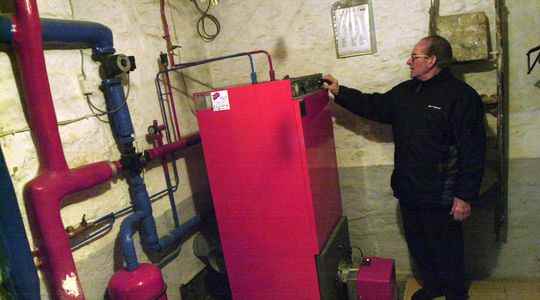The bet to achieve carbon neutrality by 2050 taken by the European Union within the framework of the “Green Deal” suggests changes in consumption, particularly in terms of energy. This is why, from July 1, boilers emitting more than 300g of CO2 per KWh equivalent are prohibited from sale. This new measure, which excludes any new equipment running on fuel oil (or coal), represents an additional step towards the energy transition, more than ever in the news between climate change and the war in Ukraine.
“In order to be able to be installed in a building, including as a replacement for existing equipment, equipment for heating or producing domestic hot water” must comply with a level of greenhouse gas emissions “less than 300 g CO2eq/kWh NCV” (i.e. 300 grams of CO2 emissions per kilowatt hour), indicates the decree published last Januarya standard then prohibitive for boilers running on pure fuel oil or coal.
- How many people are affected?
The sensitive subject concerns millions of French people, especially in rural areas. Domestic fuel oil is “the 3rd heating energy in France”. It heats “nearly 4 million buildings, including more than 3 million single-family homes as their main residence”, according to a press release from the biofuel sector, an alternative to fossil domestic fuel oil.
These houses are “mainly in rural and peri-urban areas that heating networks or town gas often do not serve”, according to data from Ademe, cited by the biofuel sector. According to a study carried out by Butagaz and Synasav, taken up by The Parisian, the Bourgogne-France-Comté, Bretagne, Grand-Est and Auvergne-Rhône-Alpes regions are those with the most oil-heated homes. The use of this type of energy is particularly important in areas where winter temperatures are low.
“On the other hand, the owners of existing equipment running on fuel oil or coal will be able to continue to use them without changing fuel, maintain them and have them repaired to maintain their efficiency”, specifies the text.
In addition, derogations from this new emissions threshold are provided for “when neither a heat network nor a natural gas network are present, and no equipment compatible with the threshold can be installed without work to reinforce the local network. of public electricity distribution”, specifies the ministry.
This particularly concerns isolated areas, “for example if the geographical location, the architecture or the characteristics of the accommodation make the work technically impossible. Or if no energy source, such as a heating or natural gas network, is is nearby to allow a connection”, explains the ministry to the Parisian.
- Does help exist?
Financial aid has been put in place by the State for owners who wish to replace their oil-fired boiler “with heating and hot water production equipment that is more environmentally friendly and more economical to use”.
The decree mentions in particular “connections to heating networks, equipment powered by electricity (example: heat pumps), biomass, solar or geothermal energy, gas, or equipment powered by a liquid biofuel (biofuel type, mixture of fuel oil and rapeseed-based biofuel) as soon as it respects the newly set threshold.
If nudges already existed to help with this energy transition – from April 15 and until the end of 2022 – the aid granted to households eligible for MaPrimeRénov’ for the replacement of a gas or fuel oil by a heat pump or a biomass boiler increased by 1,000 euros. And this, regardless of the income bracket concerned. Owners can thus obtain up to 9,000 euros in aid, for the less well-off, by combining MaPrimeRénov’ and Energy Savings Certificates.
